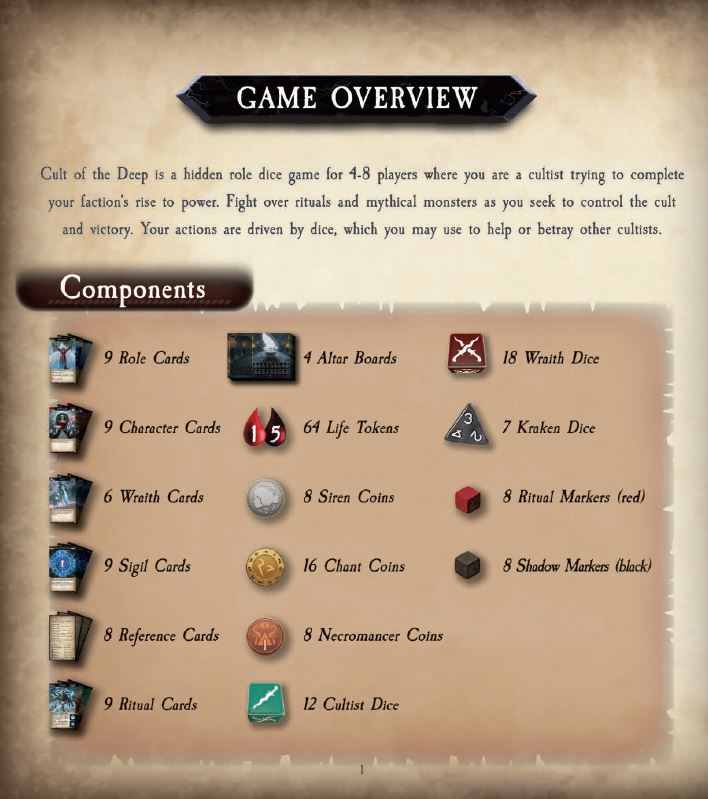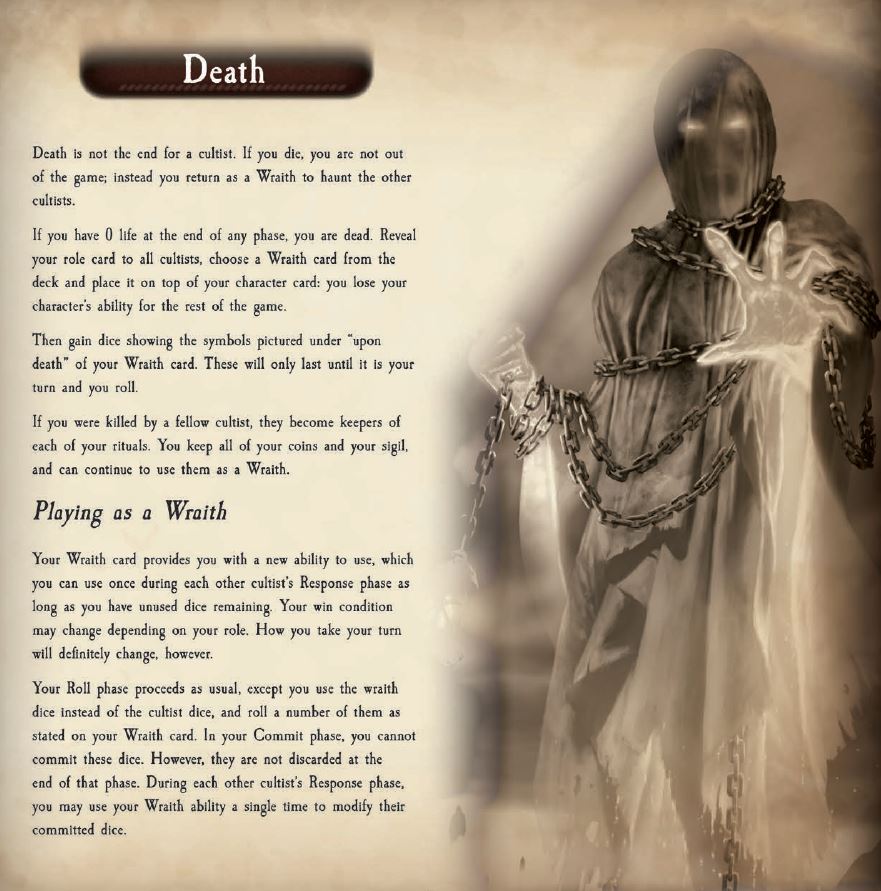Sam “King of the Hilltop”
So, what makes a good rulebook for a board game? We have been working on ours for quite some time. We have done a few iterations of it and have been working with a number of people in order to make it better. However, it always leads back to the same basic question, “what makes it good?”
I think this is a subject I would like to ask everyone and get their thoughts. As it is one of the most arduous parts of learning a game (usually) but it’s something that board game designers and publishers need to learn how to tackle. I am going to share some thoughts on it below, but I wanted to take a moment to give a huge thank you to our editor, Sam Hillier. He worked tirelessly back and forth with my brother and I to change sentences, tweak words, and streamline vocabulary. It was a great experience and the reason why the rulebook turned out as good as it is. So, if you ever need an editor, check out Sam Hillier, https://philosocopter.com/.
Game Overview
Whenever someone picks up a game, a rulebook, or box cover, it should help the customer know what kind of game they are getting into. The artwork and, most importantly, the small marketing paragraph about the game sets the scene and what the game will be like for those who play. I think setting their expectations with this correctly is a critical first step for your rulebook to have.
Component Listing
I am a huge fan of component listing with pictures of the components themselves. Not only does it allow me to check my game easily to make sure I have everything (Am I the only one who does this when I first open a board game?) but also let’s you familiarize yourself with the pieces and their names. That way when they are called out in the rules, you know what they are talking about or at least know where to find out.

Game Set-up
I like to have fairly robust set-up pages. I want to see the layout clearly, I want things marked, I want to be able to read through the set-up and visually see it. If you can’t already tell, I am a very visual person. I like pictures with brief explanations and I like lists. (ooooooh…I love checklists!)
Turn Layout
This is something that I really like in my rulebooks. So you give me all of these components, the overview has me hyped, and the game is set-up…so what do I do now? How about a turn list!? Yes, again with the lists. I like how they can lead a player through the steps and as long as the design is smooth enough where it starts to feel somewhat natural and has a logic to it, then you have done your job.
Of course there will need to be further explanations of each step and more details about the interactions but I love a good overall list or view which is then followed by further detail. I want to see the map of where I am going before I want to decide how to do all the details.
How to Win
This one I have seen a number of different spots in rulebooks and I can never decide where the best place to put it is. I think it may vary with different games but I personally like it earlier in the rulebook. For me as a player once I get the preliminary vocabulary, set-up, and brief overview, I want to know how to achieve victory. It’s in those win conditions that can help you understand how the game is played. Some games are more straightforward than others but that is totally fine. Tell me the end goal and at least if I get lost, I’ll always be able to see the end point and work from there.
Now I have seen it as one of the first things, like even before a component list on the first page of a rulebook. I don’t hate it. I think it can really work for some games, especially if the win conditions are very thematic to the game. I don’t think it works though in a lot of games. Give me the lingo and set-up, then I can try and understand how I am supposed to win.
Variants
This topic is far more controversial. Now as a player, I used to dislike variants in my games. If you wanted me to play it that way, you should have designed it that way. Now that I have matured as a board game enthusiast (addict) and have started designing my own games, I really like to have variants for games. It helps to keep the game fresh, almost like having mini-expansions built into the game.
It also allows you to take experienced players and add more rules. When someone picks up a game, usually you don’t want to flood them with rules. Get them playing and having fun as soon as possible. So streamlining rules can be very important. However, that can mean certain design elements might need to be cut or changed in order to help players better understand the game. If those rules however can add flavor and interesting choices to the game, I think having them as a variant could be really fun and rewarding for more experienced players. It’s like unlocking an achievement or leveling up in the game.
Reference Sheet
Sometimes these are in the rulebooks and at other times they are on cards or separate sheets. I really like these as it can be a handy chart or reference to quickly remind you of information. It really helps to take the burden off of the players trying to remember everything from the very first moment in the game. I have seen many games without a reference sheet struggle, even fairly simple games, because they had to keep going through the small rulebook or rules sheet to find the answer to their questions. Some of these could be resolved very quickly by having a quick guide or reference sheet.
Now, what should be on the reference sheet? For me I want a brief overview of everything to help remind me of the rules that I just read or learned. I also like any information that is important to know but maybe doesn’t come up very often in the game. That way when it does come, I can quickly remember.
Conclusion
Rulebooks are an intense undertaking and I greatly appreciate those who take the time to perfect them. Sometimes I can’t quite pinpoint my issues with a rulebook but I can usually tell when someone spent a lot of time and effort on theirs. In fact, it is something I look for in games. The better their rulebook, the more I am open to liking the game. Difficult rulebooks just make it so much harder to like a game.
So, what do you think? You have any examples of rulebooks you like? Some you dislike? Anything specific you look for in your rulebook?

Rulebooks Are Hard
Ed “Duke of BAzlandia”
Rulebooks are hard to create. They are easy to pick apart. A rulebook’s sole purpose is to teach someone how to play a game they have never played before. Not only is this its sole job, but it has to teach the game with no other resource besides itself and what is in the game box. This is a tall order. Everyone learns differently. To verify this just find a friendly local teacher and ask them about learning styles and if there is a single best way to teach all people. Yeah, there isn’t a single best way to teach all people. There are best practices that work for most people, but there will always be people where a certain method just doesn’t work or is not the best way to teach someone that particular subject.
So, how do you get your rulebook to be everything to everyone? The reality is that you can’t. What you can do is follow industry standards and best practices. I liken this to very young school kids. When kids go to preschool the first thing they do isn’t sit them down and lecture them on what letters are and what they mean. The teachers bring them in, let them play, and then separate into organized play. They move from organized play into learning and learning activities. As the kids get older they move into longer and more in depth lessons. What I am trying to say here is that young children when they first attend school is that the biggest and most helpful lessons they learn is how to learn. The point is to teach them how to learn in the current school system. It is to teach them how they best learn and what their own best personal practices will be to be successful.
Industry standards (even when unofficial) and best practices provide this backbone needed for players when opening a rulebook and learning a game. When a rulebook follows what is expected by the player and can easily be followed it leads to a game being easily picked up and learned. This is all fine in theory but the problem you run into is that you don’t know who is buying your game. It could be a veteran player and well, they can probably skim through the rules, drill down on a few items and then play your game and be just fine. A new player though might not recognized specific board game jargon that is common to veteran players. Once again, the rulebook has to be everything to everyone and that is a tall order.
In the end my recommendation is get started, write it down, work on it, and it is worth paying for expertise in this area.

Pingback: Paverson Games Welcomes Sam Hillier, Distilled’s Rules Editor! – DISTILLED